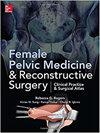在妇科泌尿外科手术后短期留置Foley导管人群中,Hippurate甲烯胺与Cranberry胶囊预防尿路感染的比较:一项双盲随机对照试验
IF 1.4
4区 医学
Q3 OBSTETRICS & GYNECOLOGY
Female Pelvic Medicine and Reconstructive Surgery
Pub Date : 2022-03-01
DOI:10.1097/SPV.0000000000001147
引用次数: 0
摘要
重要性关于一种有效的非抗生素预防骨盆重建手术后尿路感染(UTI),目前还没有达成共识。目的本研究的目的是研究在需要短期导管插入术的患者中,马齿苋甲酰胺和蔓越莓胶囊对骨盆重建手术后尿路感染率的影响。研究设计在这项随机、双盲安慰剂对照试验中,骨盆重建手术后使用导管出院的患者被邀请参与。参与者被随机分为服用蔓越莓加高铁胺或服用蔓越橘加安慰剂。主要结果是术后1周内治疗的尿路感染数量。次要结果包括术后6周内治疗的尿路感染的发生率、培养的细菌种类、尿液pH值、导管持续时间、患者依从性和满意度。计划每只手臂88名参与者的样本量。结果从2019年6月至2021年7月,185名患者被随机分组,182人被分析;89人接受安慰剂治疗,93人接受高铁胺治疗。两组的情况相似。安慰剂组1周时尿路感染的发生率(79.8%)显著高于高铁胺组(66.7%;比值比,1.97;95%置信区间,1.01–3.87;P=0.048)。术后6周,这一差异增加(89.9%vs 72.0%;比值比为3.45;95%可信区间,1.51–7.87;P=0.003)(P=0.041)导尿时间与尿pH值相近。总体依从性和满意度都很高。结论在该高危人群中,甲氨蝶呤耐受性良好,可显著降低尿路感染率。甲基苯丙胺和蔓越莓应该被认为是一种有效的预防性治疗,以减少骨盆手术后的这种常见并发症。本文章由计算机程序翻译,如有差异,请以英文原文为准。
Methenamine Hippurate With Cranberry Capsules Versus Cranberry Alone for Urinary Tract Infection Prevention in a Short-Term Indwelling Foley Catheter Population After Urogynecologic Surgery: A Double-Blinded Randomized Controlled Trial
Importance There is little consensus on an effective nonantibiotic agent for the prevention of urinary tract infection (UTI) after pelvic reconstructive surgery. Objective The aim of the study was to investigate the impact of methenamine hippurate with cranberry capsules on rates of UTI after pelvic reconstructive surgery, among patients requiring short-term catheterization. Study Design In this randomized, double-blinded placebo-controlled trial, patients discharged with a catheter after pelvic reconstructive surgery were approached to participate. Participants were randomized to receive cranberry with methenamine or cranberry with placebo. Primary outcome was number of UTIs treated within 1 week after surgery. Secondary outcomes included incidence of UTIs treated within 6 weeks postoperatively, bacterial species on culture, urinary pH, catheter duration, patient adherence, and satisfaction. A sample size of 88 participants per arm was planned. Results From June 2019 to July 2021, 185 patients were randomized and 182 analyzed; 89 received placebo and 93 received methenamine. Both groups were similar. Incidence of UTI at 1 week was significantly higher in the placebo group (79.8%) compared with the methenamine group (66.7%; odds ratio, 1.97; 95% confidence interval, 1.01–3.87; P = 0.048). This difference increased by 6 weeks postoperatively (89.9% vs 72.0%; odds ratio, 3.45; 95% confidence interval, 1.51–7.87; P = 0.003). There were fewer pseudomonal UTIs in the methenamine group (P = 0.041). Duration of catheterization and urinary pH were similar. Overall adherence and level of satisfaction was high. Conclusions In this high-risk population, methenamine was well tolerated and significantly reduced UTI rates. Methenamine with cranberry should be considered as an effective prophylactic therapy to reduce this common complication after pelvic surgery.
求助全文
通过发布文献求助,成功后即可免费获取论文全文。
去求助
来源期刊

Female Pelvic Medicine and Reconstructive Surgery
OBSTETRICS & GYNECOLOGY-
CiteScore
2.10
自引率
12.50%
发文量
228
期刊介绍:
Female Pelvic Medicine & Reconstructive Surgery, official journal of the American Urogynecologic Society, is a peer-reviewed, multidisciplinary journal dedicated to specialists, physicians and allied health professionals concerned with prevention, diagnosis and treatment of female pelvic floor disorders. The journal publishes original clinical research, basic science research, education, scientific advances, case reports, scientific reviews, editorials and letters to the editor.
 求助内容:
求助内容: 应助结果提醒方式:
应助结果提醒方式:


